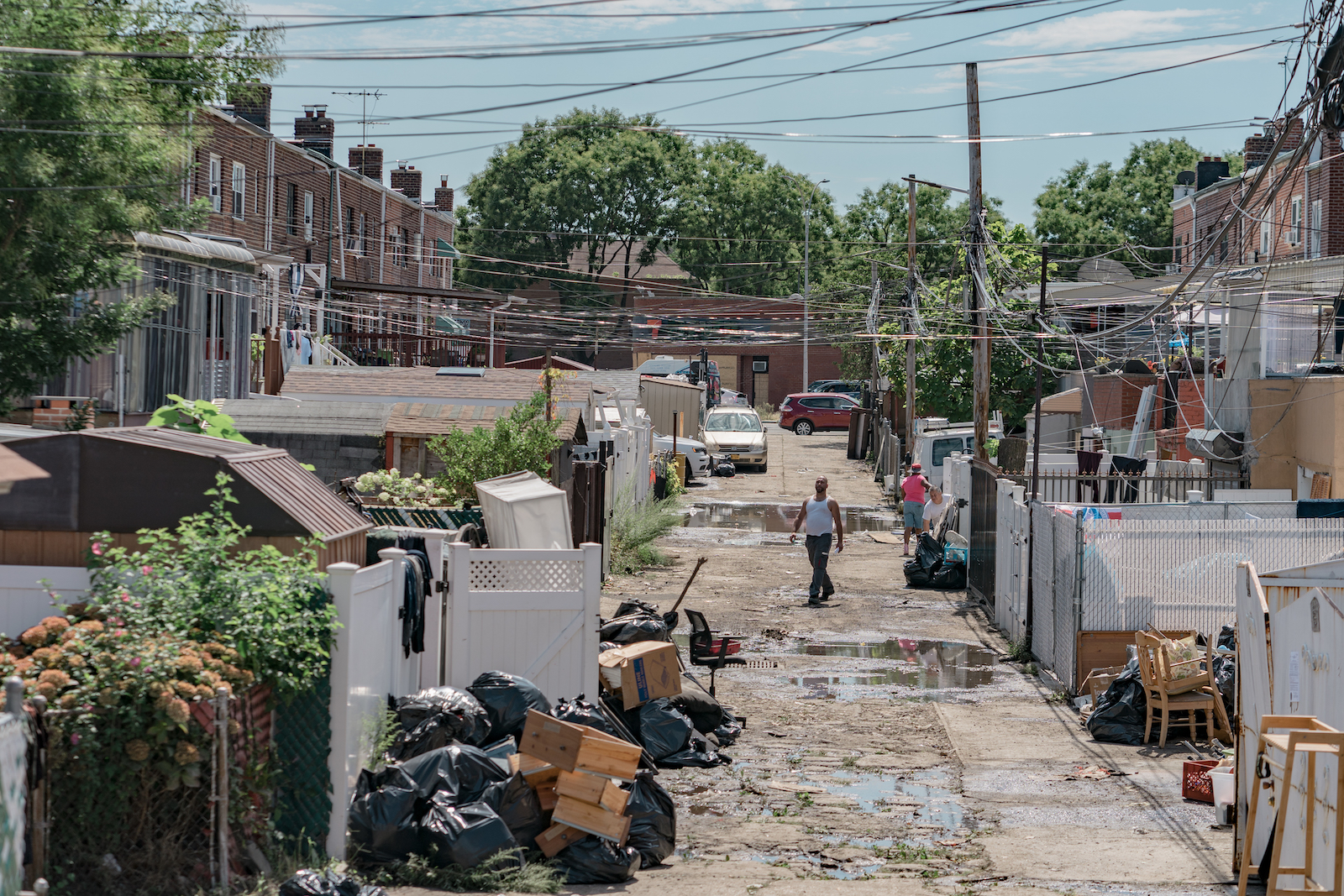Undocumented Immigrants Denied Aid After Natural Disasters
核心概念
Undocumented immigrants face exclusion from federal aid after natural disasters due to their immigration status, leading to a lack of support and resources in times of crisis.
摘要
Undocumented immigrants are denied federal aid post-disasters due to their status, leaving them vulnerable. New York's $27 million fund is the first initiative in the U.S. supporting undocumented survivors. Climate-related disasters disproportionately affect minorities and low-income communities. Nonprofits struggle to assist undocumented immigrants due to lack of infrastructure and eligibility requirements. Advocates aim to extend emergency relief frameworks for future disaster aid.
客製化摘要
使用 AI 重寫
產生引用格式
翻譯原文
翻譯成其他語言
產生心智圖
從原文內容
前往原文
grist.org
Facing floods and fires, undocumented immigrants have nowhere to turn for help
統計資料
Hurricane Ida dumped over three inches of rain an hour in NYC.
New York announced a $27 million fund for undocumented Ida survivors.
An estimated 10 million people live in the U.S. without legal authorization.
FEMA provides funds for homeowners post-disasters.
California launched funds for those impacted by COVID-19, including undocumented immigrants.
引述
"The fact that New York is taking this step is historic." - Lucas Zucker
"One of the biggest barriers to climate resilience...is that millions...are almost completely excluded from the safety net." - Michael Méndez
深入探究
How can local authorities better support undocumented immigrants during natural disasters
Local authorities can better support undocumented immigrants during natural disasters by implementing several key strategies. Firstly, they should establish clear and accessible communication channels in multiple languages to ensure that all residents, regardless of their immigration status, receive timely information about evacuation procedures, shelter locations, and available resources. Additionally, local authorities should work closely with community organizations and nonprofits that have existing relationships with undocumented populations to facilitate the distribution of aid and services.
Furthermore, it is crucial for local authorities to create inclusive disaster response plans that explicitly address the needs of undocumented immigrants. This may involve setting up designated shelters where individuals do not need to provide identification or proof of legal status to access assistance. Training first responders and emergency personnel on cultural competency and sensitivity towards immigrant communities can also improve the overall effectiveness of disaster response efforts.
By fostering trust between undocumented immigrants and local government agencies through proactive outreach initiatives and tailored support programs, local authorities can ensure that all residents feel safe seeking help during times of crisis.
What legal challenges exist in extending emergency relief frameworks for undocumented individuals
Extending emergency relief frameworks for undocumented individuals faces several legal challenges that must be navigated carefully. One major obstacle is the restriction imposed by federal laws on providing certain types of financial assistance exclusively to U.S. citizens or documented immigrants. This limitation poses a significant barrier when attempting to include undocumented individuals in disaster relief programs funded by federal sources like FEMA or HUD.
Moreover, concerns about potential legal repercussions related to immigration enforcement further complicate efforts to extend emergency relief frameworks for undocumented populations. The fear among these individuals that seeking aid could lead to deportation or other punitive actions creates a chilling effect that deters them from accessing essential services during emergencies.
To overcome these legal challenges, advocates often explore creative solutions within existing legislation loopholes or exceptions that allow for one-time emergency relief payments without violating federal restrictions on benefits for unauthorized immigrants. By leveraging these opportunities strategically while advocating for policy changes at both state and federal levels, there may be avenues to expand access to critical support for vulnerable communities affected by natural disasters.
How can society address the moral implications of excluding vulnerable populations from disaster aid
Addressing the moral implications of excluding vulnerable populations from disaster aid requires a collective effort from society as a whole. It is fundamentally unjust and unethical to deny assistance based on immigration status when individuals are facing life-threatening situations due to natural disasters.
One way society can tackle this issue is by advocating for comprehensive policy reforms at various levels of government aimed at ensuring equitable access to emergency resources regardless of documentation status. This includes pushing for legislative changes that remove barriers preventing undocumented immigrants from receiving vital assistance during crises.
Additionally, raising awareness about the disproportionate impact of exclusionary practices on marginalized communities through education campaigns and public discourse can help mobilize public support for more inclusive disaster response measures. By highlighting the human cost of leaving vulnerable populations behind in times of need, society can foster empathy and solidarity towards those who are most affected by systemic injustices.
Ultimately, addressing the moral implications necessitates a shift in societal values towards prioritizing compassion, fairness, and solidarity with all members regardless of their background or legal standing.
0

